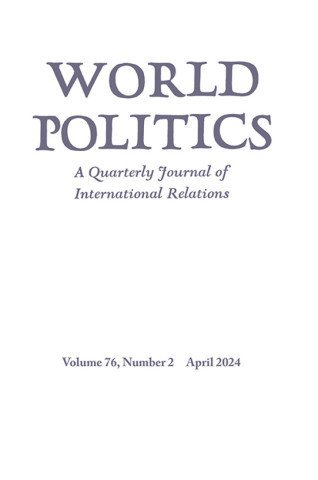Social Democratic Party Exceptionalism and Transnational Policy Linkages
IF 2.5
1区 社会学
Q1 INTERNATIONAL RELATIONS
引用次数: 5
Abstract
ABSTRACT Political parties learn from foreign incumbents, that is, parties abroad that won office. But does the scope of this cross-national policy diffusion vary with the party family that generates those incumbents? The authors argue that party family conditions transnational policy learning when it makes information on the positions of sister parties more readily available and relevant. Both conditions apply to social democratic parties. Unlike other party families, social democrats have faced major competitive challenges since the 1970s and they exhibit exceptionally strong transnational organizations—factors, the authors contend, that uniquely facilitate cross-national policy learning from successful parties within the family. The authors analyze parties’ policy positions using spatial methods and find that social democratic parties are indeed exceptional because they emulate one another across borders more than do Christian democratic and conservative parties. These findings have important implications for our understanding of political representation and of social democratic parties’ election strategies over the past forty years.社会民主党例外论与跨国政策联系
政党向外国现任者学习,也就是说,向国外赢得执政的政党学习。但是,这种跨国政策扩散的范围是否会随着产生这些现任者的政党家族而变化呢?作者认为,当政党家庭使姊妹党立场的信息更容易获得和更相关时,它就会制约跨国政策学习。这两个条件都适用于社会民主党。与其他政党家族不同,自20世纪70年代以来,社会民主党面临着重大的竞争挑战,他们表现出异常强大的跨国组织——作者认为,这些因素独特地促进了从家族内部成功政党中学习跨国政策。作者使用空间方法分析了政党的政策立场,并发现社会民主党确实是例外,因为他们比基督教民主党和保守党更能跨国界地相互模仿。这些发现对我们理解过去四十年的政治代表性和社会民主党的选举策略具有重要意义。
本文章由计算机程序翻译,如有差异,请以英文原文为准。
求助全文
约1分钟内获得全文
求助全文
来源期刊

World Politics
Multiple-
CiteScore
8.40
自引率
0.00%
发文量
24
期刊介绍:
World Politics, founded in 1948, is an internationally renowned quarterly journal of political science published in both print and online versions. Open to contributions by scholars, World Politics invites submission of research articles that make theoretical and empirical contributions to the literature, review articles, and research notes bearing on problems in international relations and comparative politics. The journal does not publish articles on current affairs, policy pieces, or narratives of a journalistic nature. Articles submitted for consideration are unsolicited, except for review articles, which are usually commissioned. Published for the Princeton Institute for International and Regional Affairs
 求助内容:
求助内容: 应助结果提醒方式:
应助结果提醒方式:


